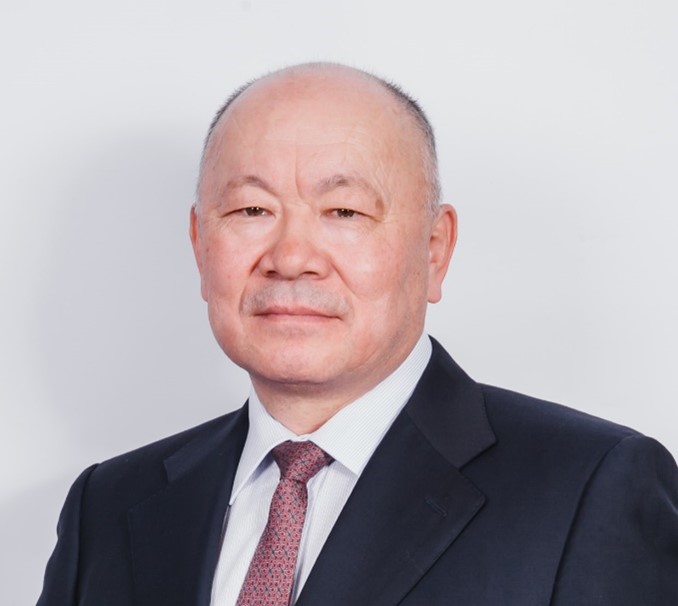On August 22, 2023, a public hearing was held in the village of Ulken dedicated to the question of the possible construction of a nuclear power plant (NPP) in this region.
The hearing was conducted with transparency and extensive community participation in the decision-making process regarding the construction of the NPP. Representatives of local authorities, government bodies, and independent environmental organizations presented reports, providing arguments both in favor of and against the construction of the NPP.
After the hearings, which were widely covered by the media, the public opinion among residents, experts, private organizations, and government bodies proved to be diverse and nuanced. A rich and multifaceted perspective was formed on various aspects of this issue. The majority of participants in the discussion expressed a request for active community involvement in the decision-making process. They emphasized that decisions concerning a project of this scale cannot be made without considering the opinions of residents.
During the hearings, a portion of the society welcomed the construction of the nuclear power plant as part of ensuring national energy security. They believe that a diversity of energy sources, including nuclear energy, guarantees energy supply stability. Their stance is based on the conviction that nuclear energy can become a reliable support for sustainable development in the region and the country as a whole. They are convinced that modern technologies enable a high level of safety and the minimization of risks. Additionally, they emphasize the importance of realizing the economic development potential of the region by attracting investments, creating new jobs, and expanding economic opportunities. Supporters of the nuclear power plant construction highlighted that public awareness and the ability to participate in the process are essential components of fairness and transparent policy.
On the other hand, another portion of the society raised the theme of profound ecological risks associated with nuclear energy. They pointed out past incidents such as Chornobyl and Fukushima, and called for stringent safety measures and thorough preparation, including the need to minimize risks and involve the community in risk-level decisions. They highlighted the complexity of long-term economic benefits and budgetary burdens related to construction and operation. They advocated for a balanced approach to risk reduction and benefits enhancement related to NPP construction, including the analysis of scientific data, assessment of technological maturity, and consideration of expert opinions. Many participants in the hearings believe that additional scientific research is necessary to make well-founded decisions regarding NPP construction. This pertains to both technological aspects and negative consequences for the environment and human health.
A central concern for many remains the impact of the NPP on the health and safety of residents. Many safety measures require transparency and accessible information by radiation standards, control methods, and emergency response measures. One of the critical topics for discussion was the measures to ensure safety and risk minimization during the construction and operation of the NPP, the necessity of training personnel working at the NPP, and the issue of storage and disposal of radioactive waste.
One aspect of the discussion revolved around the influence of financial and social stakeholders on the decision-making process regarding the construction of the nuclear power plant. Some participants expressed concerns about the potential alignment of the project with political regimes and its subsequent implementation. They raised possible apprehensions in the event of choosing Rosatom or Chinese companies as vendors.
Following the public hearings on the construction of a nuclear power plant (NPP) in the village of Ulken, several new aspects and developments emerged. One key aspect, requiring further investigation, revolves around the impact of the NPP on the environment and human health. In response to this, the Ministry of Energy announced its intention to conduct additional scientific research, including the assessment of potential ecological and radiation risks. To ensure transparency and independence in the process, it was decided to establish expert groups comprising representatives from various fields: ecology, economics, healthcare, and technical sciences. The conduct of public hearings also led to an expansion of public participation in overall decisions.
One new approach post-discussion involves comparing various technological solutions in the field of nuclear energy. Analytical studies will be carried out to examine different reactor types, their safety, efficiency, and environmental impact. Following these discussions, it was also decided to monitor the social and economic consequences of the project for the local community. This includes studying employment, education, medical services, and daily life. In pursuit of maximal safety and sustainability, engagement with international organizations, primarily focusing on nuclear energy, was announced. This will leverage global expertise and prior practices in project implementation. The public hearings also advocated for a reconsideration of the overall energy strategy of the region. Plans include deeper discussions on long-term phenomena and alternative energy sources.
The recent public hearings highlighted the weak efforts of governmental bodies in informing the public about the country's future energy security.
Overall, to improve public opinion regarding the construction of a nuclear power plant (NPP) in Kazakhstan, a comprehensive and thoughtful approach is necessary. This approach should be oriented towards considering public opinions, transparency, scientific and ecological aspects, as well as ensuring safety and the long-term interests of the country. It is essential to create and implement a large-scale information campaign aimed at providing objective information about the benefits, risks, and features of nuclear energy sustainability. Expanding public participation in decision-making is a crucial aspect. Regular public hearings, forums, surveys, and online consultations should be organized to allow the country's residents to voice their opinions and ask questions.



-optimized.jpg)




